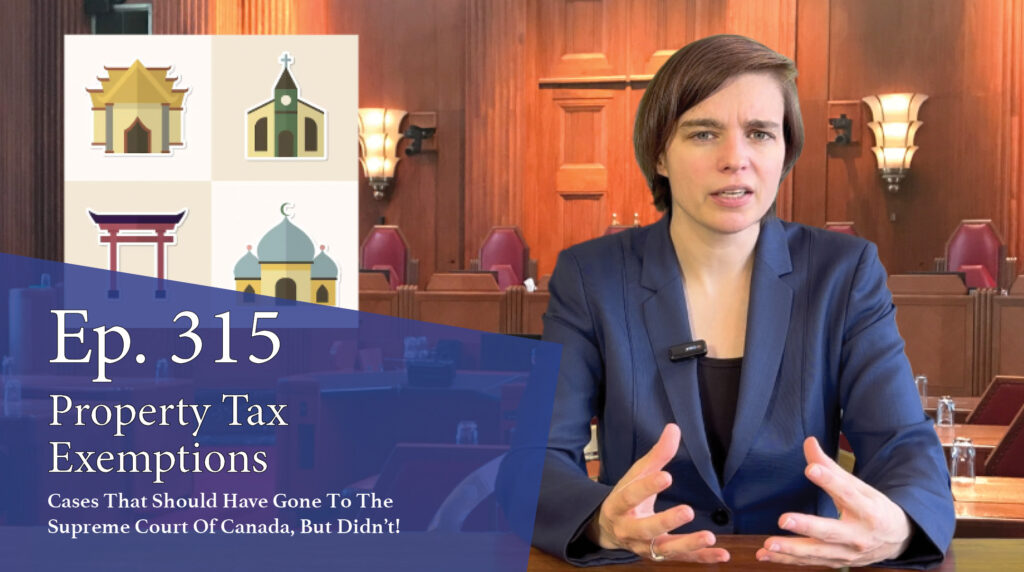Today, Kyla Lee from Acumen Law Corporation examines a religious tax exemption case involving a Taoist Society and its property tax dispute, raising key concerns about how non-traditional religious practices are assessed under Canadian tax law.
Key Issues Discussed:
Religious Tax Exemptions & Defining a Place of Worship
- A Taoist Society purchased properties for religious and cultural activities, including spaces for a traditional martial art that was part of its religious practice.
- The city assessed property taxes, arguing these were not places of worship but activity spaces unrelated to religious services.
- The Taoist Society challenged the tax assessment, claiming the martial art was integral to their religious practice and should qualify for a tax exemption.
- The court disagreed, ruling that the properties did not meet the legal definition of a “place of worship.”
- The Society sought leave to appeal to the Supreme Court of Canada, but the Court denied leave.
Appeal & Supreme Court Dismissal:
- The Society lost at every stage, with courts ruling that martial arts practice did not qualify as a religious activity for tax purposes.
- The Supreme Court’s refusal to hear the case left unresolved issues about how non-Western religious practices should be treated under Canadian tax law.
Why This Case Mattered:
Who Gets to Decide What Counts as Religious Worship?
- Tax exemptions for religious properties were historically designed around Christian-based places of worship such as churches, mosques, and temples.
- Courts and tax authorities often lack expertise in religious traditions outside of mainstream Judeo-Christian practices.
- Should secular institutions decide what is “religious enough” for tax purposes, or should religious experts have a say?
Multiculturalism & Religious Freedom in Tax Law
- Canada’s increasing diversity demands evolving tax policies to reflect a broader understanding of worship.
- Denying exemptions based on narrow interpretations disproportionately impacts non-Western religious groups.
Missed Opportunity by the Supreme Court:
By declining to hear this case, the Supreme Court left critical legal questions unanswered.
- How should Canadian law define a “place of worship” beyond traditional religious services?
- Should non-traditional religious practices, such as martial arts, dance, or meditation, qualify for tax exemptions?
- What safeguards should be in place to ensure fairness in granting tax exemptions across diverse religious practices?
A ruling could have modernized tax law and clarified how multicultural religious practices fit into Canada’s legal framework.
